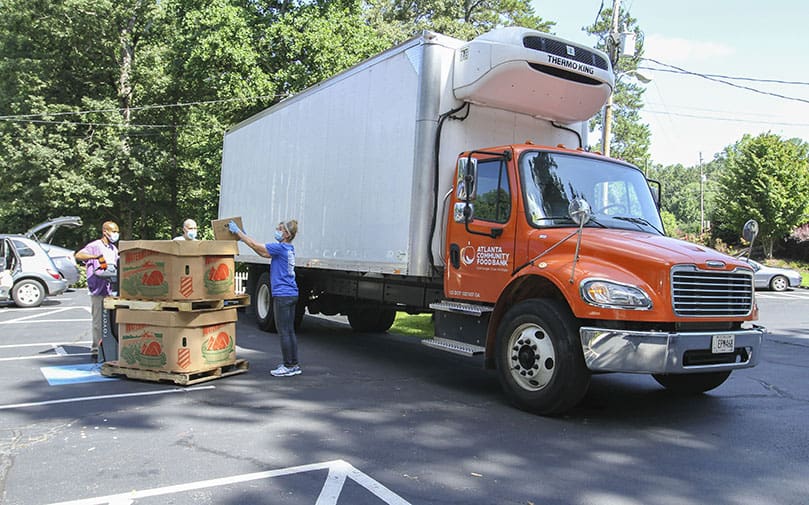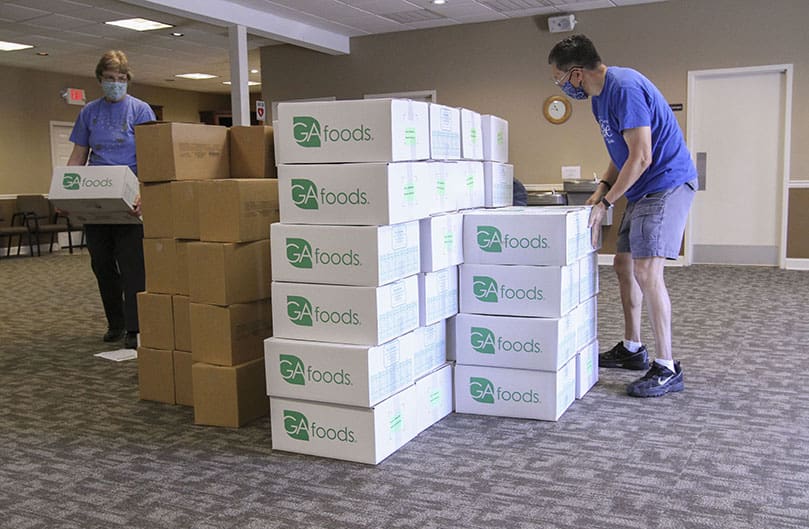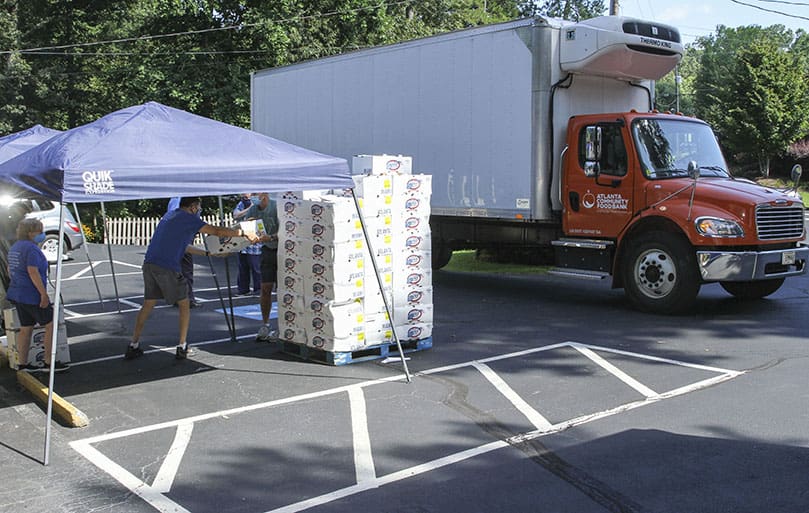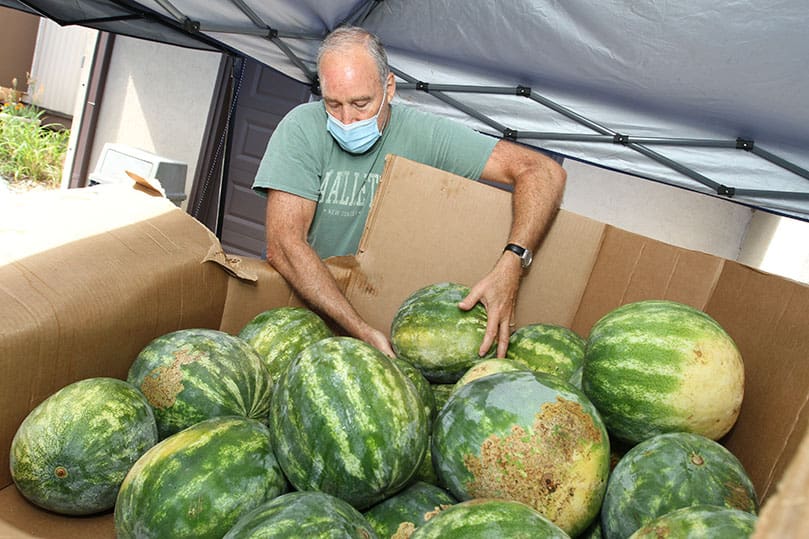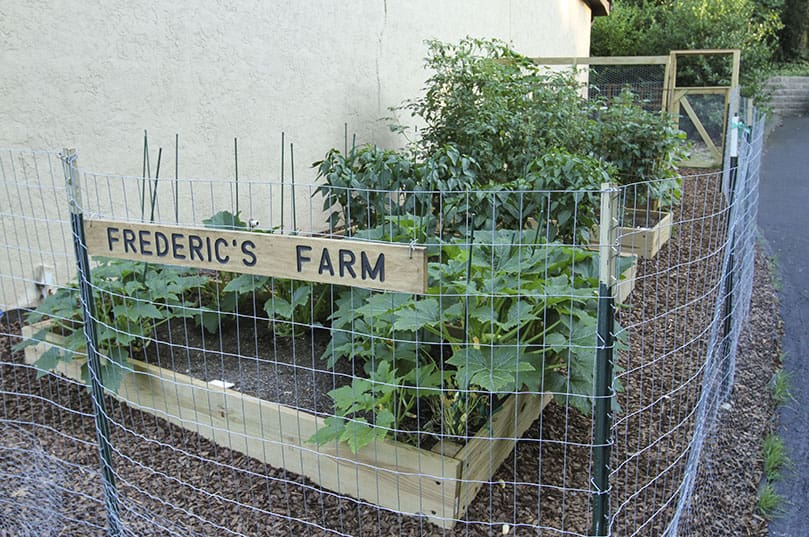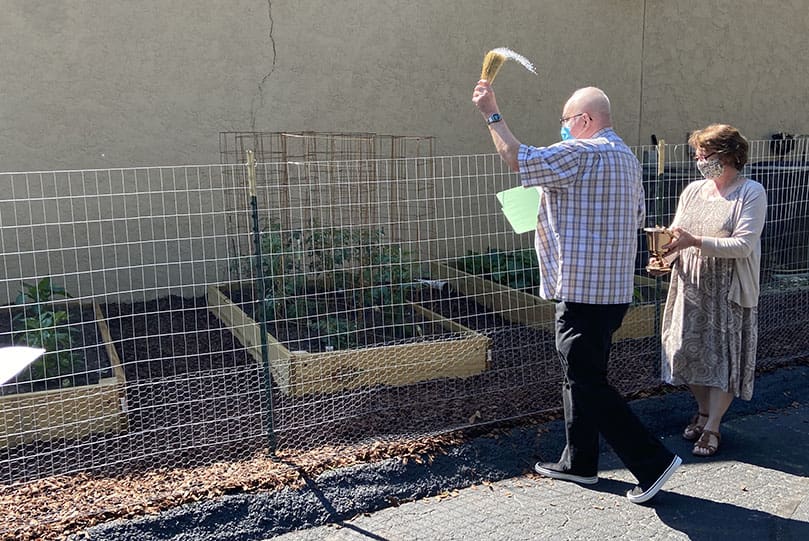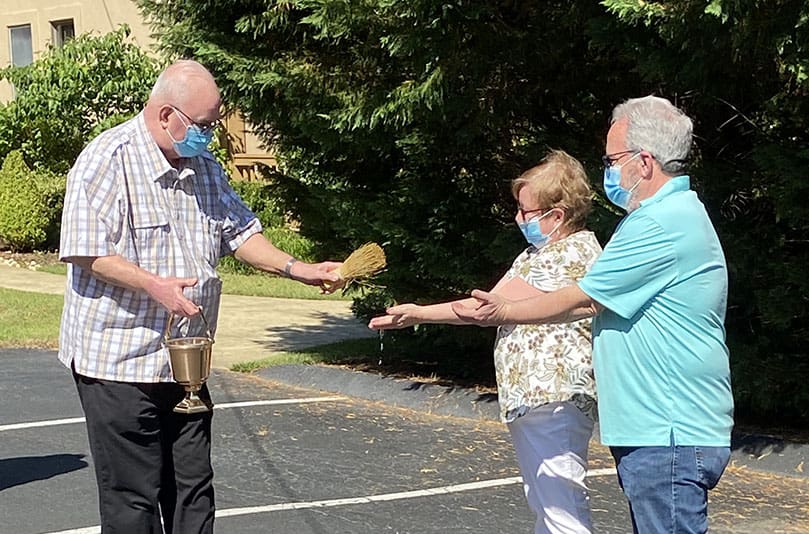Karen Miller, right, pulls out a box of watermelon as the Atlanta Community Food Bank driver and a volunteer look on. Miller, a volunteer with St. Ann Church’s St. Vincent de Paul Society, coordinates the food pantry and the parish garden. Nearly 4,400 pounds of produce was brought to the Marietta parish July 13. Another 14,000 pounds of produce was delivered July 1. Photo By Michael Alexander
Marietta
St. Ann volunteers harvesting hope with community garden
By ANDREW NELSON, Staff Writer | Published July 29, 2020 | En Español
MARIETTA–In the afternoon heat at St. Ann Church, Kathy Gist inspected rows of yellow squash, zucchini, tomatoes. Not too much water, not too little. Flowers nearby attract bees. Herbs act as bait to keep pests from devouring the growing vegetables.
From the basil and oregano, dill and thyme, small stems are clipped to give to families and guests of the parish St. Vincent de Paul food bank.
“They have just been tickled pink. There is a lot of excitement, gratitude, ‘you grew that for me?’” said Gist, a longtime parishioner at the Marietta church.
The community garden, named for the 19th century founder of the ministry, is one of the new ways of doing things, along with wearing masks and enhanced safety precautions inside the food pantry.
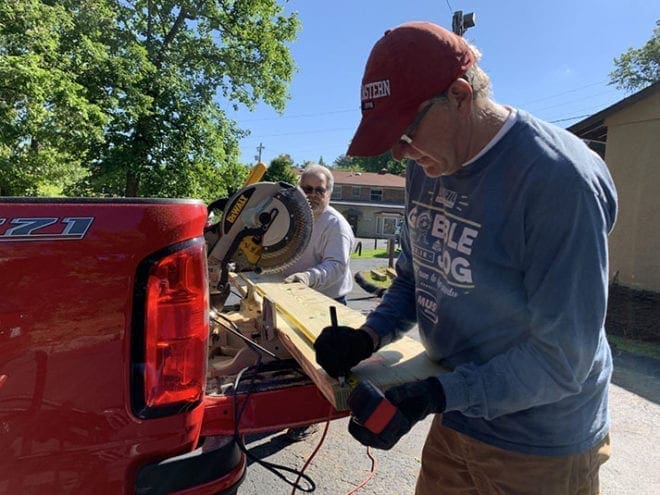
Adult Mission Ministry volunteers Jim Brewer, foreground, and Dave Smith are measuring and cutting the wood for the garden planters they built May 9. Photo By Susyn Ahern
Karen Miller helped transform the St. Vincent de Paul ministry at St. Ann. The ministry has nearly two dozen volunteers serving the community.
Miller stepped into the ministry 10 years ago. She left her career in the job recruitment industry to care for her late mother-in-law. After her death, Miller said she felt more of a desire to serve than to return to the career track.
Despite the dire headlines of unemployment and civil unrest, Miller and others said ministry volunteers find hope knowing they are serving families navigating these difficult times, from facing food scarcity to unemployment. The program serves about 250 families a month.
The pandemic has forced many into unemployment. As a result, food insecurity is a new issue for some households. In Metro Atlanta, a Census Bureau survey reported from July 2 to July 7 as many as 18% of households experienced food insecurity, where there is often not enough to eat. Some 745,000 Georgia households during the same week relied on free food.
The ministry recently received pallets of meats, dairy and vegetables from the State Farmers Market followed by two additional deliveries from Atlanta Community Food Bank.
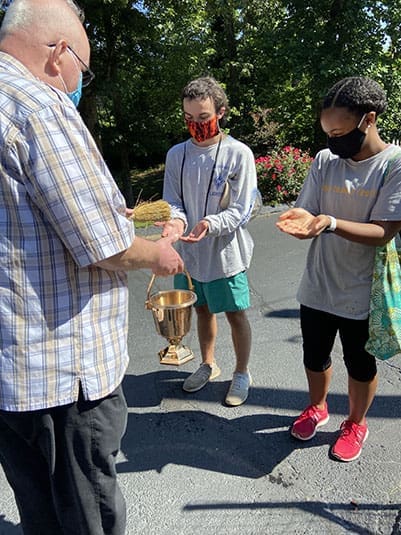
In addition to blessing Frederic’s Farm June 12, Missionary of Our Lady of La Salette Father John Gabriel, left, blesses the hands of Sean McLoughlin and Grace St. Urbain. Sean helped fill the garden planters with dirt, install the trellis and spread the wood chips (ground cover). Grace also helped install the trellis and spread the wood chips. Photo By Karen Miller
The program has distributed thousands of pounds of food. In one truck alone was 700 boxes, each filled with 20 pounds of produce, shared with parishioners, local families in need, in addition to other nonprofits in Marietta, Woodstock and Atlanta. The box distribution is a program of the U.S. Department of Agriculture with items produced by the nation’s farmers.
Sharing a bountiful crop
Volunteers Lorraine and David Hom lowered the seats in their Honda CR-V to load more than a dozen of the boxes for home deliveries. It was near the end of their day that started around 9 a.m. on July 13. With the program just getting off the ground, the ministry is taking this new home delivery program slowly. The Homs had three stops, with people receiving what they could use.
“One more errand to drop off a box of food isn’t a big deal,” said Lorraine, a retired middle school teacher. “The boxes are chock full of nice, fresh produce.”
Lorraine said the folks were thrilled to get the boxes since they couldn’t drive or didn’t have access to transportation to make it to the parish for pickup.
The Homs have served with the ministry for five years, starting out making weekend lunches for grade school students at risk of going hungry.
“It’s always about putting your faith in practice. The bottom line, for me anyway, is you have to practice what you preach,” she said, before leaving for another turn getting food to a waiting person.
Since March, the parish campus had been fairly quiet, with first the suspension of public Mass and now opening its doors to reservation-only services.
Eyeing an empty plot on the campus, the pantry leaders decided to break ground to grow food. Although it was long a topic of conversation, it took the lockdown to make it happen. Members of the Adult Mission Ministry hammered together raised wooden planters and built fencing to create what is known as Frederic’s Farm, named after Frederic Ozanam, who founded the Society of St Vincent de Paul in 1833.
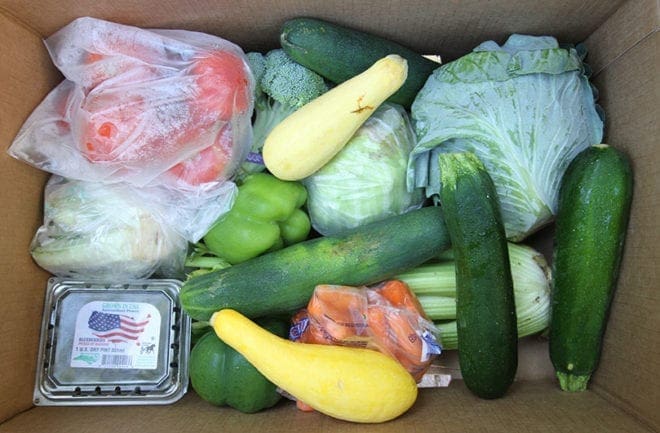
One of the pallets delivered on July 13 to St. Ann Church, Marietta, contained boxes of produce like this one. Altogether 4,381 pounds of food was brought to the parish that day. Another 14,000 pounds of produce was delivered July 1. Photo By Michael Alexander
They are sharing cucumbers, squash, tomatoes and peppers from the harvest.
Miller said access to healthy food can be a challenge to families with limited resources so offering the garden-grown vegetables helps families develop and maintain healthier lifestyles.
Planting a garden in dire times was an act of hope and a message for families and volunteers burdened by the weight of these times.
Said Gist, “You have to live in hope because you never know what each day will bring, but you plant.”
